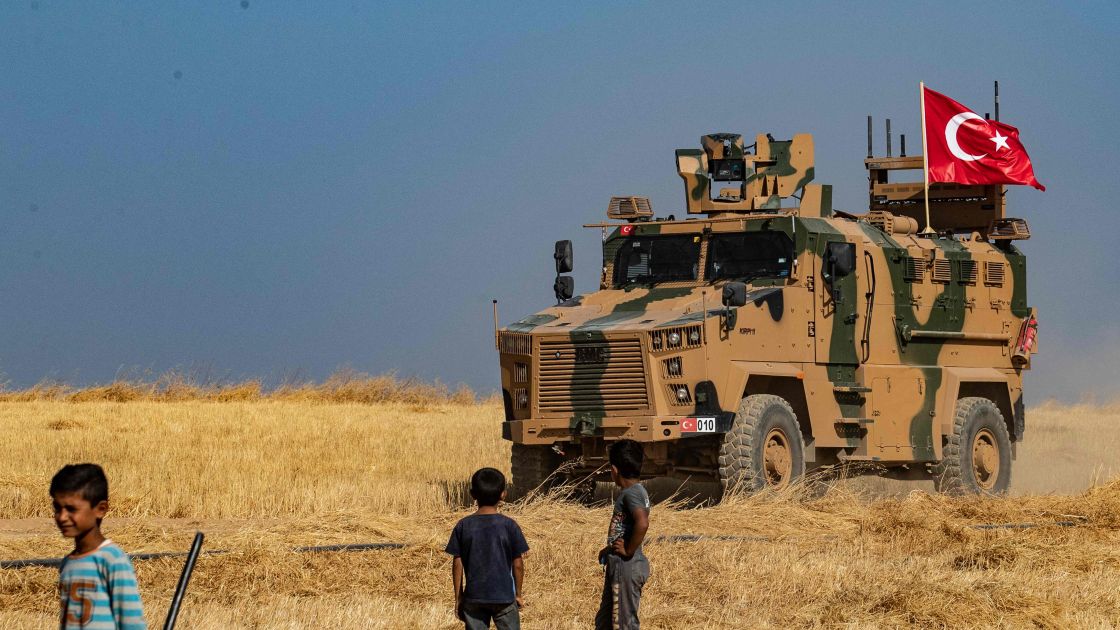- Editorials
- Posted
Kassioun Editorial 1105: The Syrian-Turkish Understanding is a National Necessity
As the Syrian-Turkish settlement advances, the discourses of the extremists from the Syrian sides hostile to this path overlap in a clear and blatant manner. Of course, each side has its own arguments for refusal, or rather its pretexts that it works to promote and of which it tries to convince people. The three most important of these arguments/pretexts are:
First: “Raising the level of meetings will legitimize and prolong the Turkish occupation of Syrian territory”. Nevertheless, logic indicates that ending the occupation can be done in one of two ways, either war or negotiation. Even the proponents of the aforementioned proposition do not say war is an option, not to mention that reality does not allow it as a way to end the Turkish occupation; at the same time, they do not want and are trying to obstruct negotiations and settlements. The realistic and practical result of their proposals and behavior is to keep things as they are; that is, to continue and prolong the occupation, but also to reopen the door to a new Turkish aggression that invades additional areas of northern Syria.
On the other hand, serious engagement in the settlement is a sure door towards ending the occupation, because our cards as Syrians in this settlement are not weak, as some try to portray. Rather, their strength stems not only from our right to our territory and our sovereignty over it, but also from the international balances in which our right is supported by both Russia and Iran within Astana and with them the main Arab countries. This is in addition to the fact that Turkey’s interest, and in its interlinking with the interests of the rising powers, requires its complete withdrawal from Syria in parallel with achieving a political settlement to the Syrian crisis through the full implementation of UNSC Resolution 2254.
Second: “The Autonomous Administration and the Syrian Kurds are the target of the Syrian-Turkish settlement”. First and foremost, the failure to achieve a settlement, as we indicated above, means reopening the door to a new Turkish military operation, which the Americans will not prevent if the conditions for carrying it out are met, just as they did not prevent previous operations. That is, opening the door for more losses and bloodshed, implicitly and particularly among the Syrian Kurds. On the other hand, a settlement means ending the possibility of any new aggression through the deployment of the Syrian army along the borders. It also means starting the process of real political change, which represents the only entry point for fulfilling the will of the Syrian people with all its components, and implicitly agreeing on the form of administering all regions in a unified Syria, realizing stolen rights, and ending grievances, within a new political system decided by Syrians themselves and adopting an advanced formula for the relationship between centralization and decentralization for a whole unified Syria.
Third: “A Syrian-Turkish settlement is normalization that legitimizes the regime and cancels political transition”. The implicit logic of this proposition is the same one that extremists have continued to repeat for more than ten years and is based on the “toppling” (the regime) logic, whereby “there is no dialogue with the regime” and “no recognition thereof”, but only a demand for its departure. The proponents of this proposition practically reject the whole idea of a political solution, the essence of which is based on two sides, each of which recognizes the other, and negotiate a political transition that leads to a peaceful and radical regime change after years of futile war that devastated the country. By holding on to the idea of “toppling” in parallel with the opposing side holding on to the idea of “decisiveness” (militarily), the process of regime change has been delayed all these years. Today, the extremists are trying to delay it more years through this proposal and this behavior that rejects the Syrian-Turkish settlement.
What should be clear and understandable is that a Syrian-Turkish settlement, under the auspices of Astana, with the support of China and an understanding with key Arab countries, is not intended in any way to preserve the existing regime. On the contrary, it is intended to change the regime peacefully through consensus among all Syrians on the basis of UNSC Resolution 2254 and according to their will and dialogue among them.
The stage we are living through now is one of fruition of the base of regional, international, and local understandings that allow for the full implementation of 2254. These understandings include the Syrian-Turkish settlement as one of the most important entry points towards implementing the resolution. They also include understandings that involve stakeholders in ending the attrition and the Syrian crisis. The list of those on the international and regional level includes the Astana tripartite, along with China, and key Arab countries.
The main sides hurt by moving towards stability and from proceeding with the Syrian-Turkish settlement, is the American-“Israeli” side, and with it, of course, the extremists and warlords from various sides, for whom the crisis has become an existential matter that they cannot survive in the event of its end.
The interest of patriotic Syrians, which is also the interest of the plundered majority of Syrians, lies with pushing towards completing the Syrian-Turkish settlement in order to reach understandings based on genuine respect for the sovereignty of the Syrian people and the Syrian state in various fields. Such understandings would constitute an essential gateway towards restoring sovereignty and towards fulfilling the Syrian people’s right to determine their political future in all its aspects through the full implementation of UNSC Resolution 2254.


